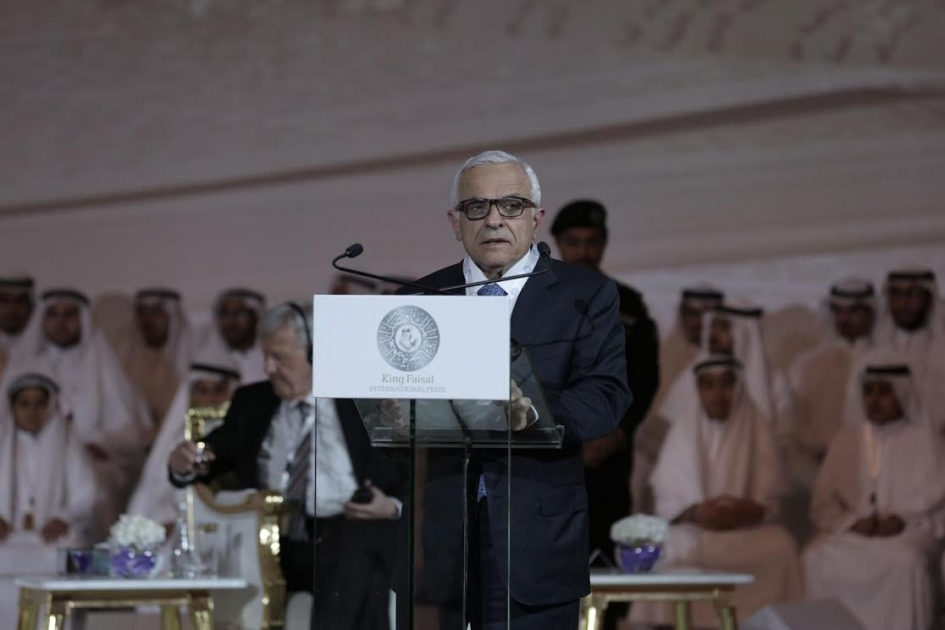
King Faisal International Award laureate calls for review of Islamic political thought
The winner of King Faisal International Prize 2017 for Islamic Studies, Professor Ridwan Al-Sayyid, has underscored the importance of revisiting the Islamic political thought and heritage in Islamic sources, calling for adherence to moderate Salafism.
Al-Sayyid stated this during the lecture, ‘Working with Islamic political thinking and the issue of the scientific reference’, organised by the General Secretariat of King Faisal International Prize at King Faisal Foundation auditorium. The lecture was attended by senior academics, political experts and ambassadors.
Al-Sayyid won the King Faisal International Prize 2017, which this year was on the topic of Muslim Political Thought, for his research contributions and his thorough knowledge of the Arabic Islamic jurisprudential and political heritage based on modern research methodology.
The lecture reflected the General Secretariat’s efforts to provide innovative platforms to exchange ideas with prominent scientists and researchers, and shed light on their achievements which have enriched mankind.
During the lecture, Al-Sayyid highlighted the obstacles encountered in the Islamic political thinking, pointing out that many Muslims today believe strongly in an Islamic theocratic state when in fact the main task of any nation is to manage the public affairs of its people. He criticised the Sunni doctrine adopted by the self-proclaimed Islamic State, which is also known as ISIS, stressing that there is not much difference between the ISIS extreme doctrine and that of the Shiite as both contradict moderate Salafism, which in his opinion has a promising future for Muslims. Salafism needs to be revived, not radicalised, he stressed.
During his lecture, he wondered why the Muslim World has failed to establish a global scientific reference institution for Islamic studies and humanities. He also expressed surprise that Arab universities have not expanded their capabilities to act as reference entities, which is leading to a reliance on British, American and even Japanese and Chinese universities. The universities in these four countries have become a scientific reference for Islamic studies and humanities and their degrees in these fields have gained tremendous respect.
Al-Sayyid’s academic research is characterised by its accuracy and successful integration of traditional Islamic political thought and current Arabic Islamic reality. He has also conducted multiple studies on Muslim political thought, including issues of governance, authority, state, society and nation as related to historic Islamic reality.



























